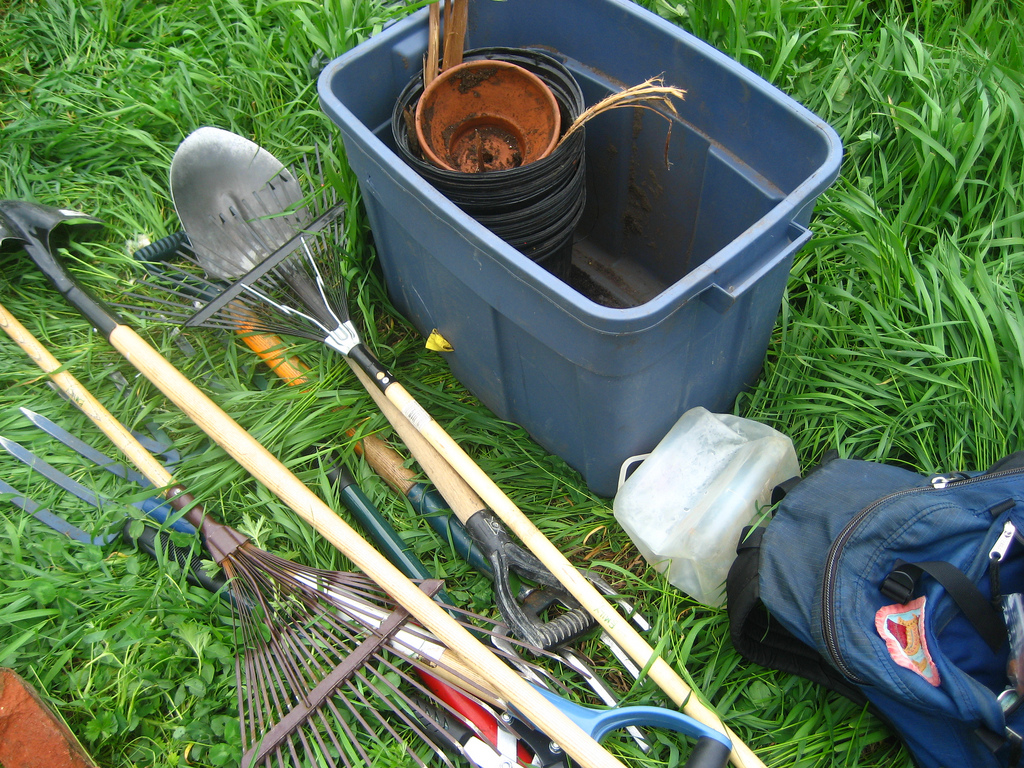This week is Earth Week and with that rabble.ca has produced myriad materials on Earth Week-related topics, among one of which is food. rabble.ca has again launched the Vegan Challenge inciting readers to take a look at the food they consume and try a different food consumption method by going vegan and the Babble Book Club is trying to inspire readers to take a look at the industrial food system and how its techniques negatively affect our country, diet and health by reading Food Inc.
With so much discussion surrounding food, I decided to take a closer look at the food revolution of eating locally and producing some of our own foods. Being from a farming family, I don’t inherently disagree with eating meat or dairy products, but I do disagree with how most of those products under the industrial food system are created, cultivated and distributed. Unfortunately, I have become part of the problem: my inability to plan ahead and triumph over my gluttonous side has left me a consumer of terrible goods and someone who has, in a larger sense, become disconnected from food.
What this list hopefully inspires to do is not only read (read!), but promote a greater awareness of food, food culture and food production and consumption. How can we feed a metropolis without the industrial food system? Is eating vegan/vegetarian a better alternative to eating locally and ethically? How can we contribute to urban agriculture? These are just some questions each of the following books strives to answer, and they do it with humourous anecdotes, personal divulgements and positive prescriptions.
So let’s get reading, and then get eating!
Locavore: From Farmers’ Fields to Rooftop Gardens, How Canadians are Changing the Way We Eat – Sarah Elton
Elton takes the reader on a journey of self discovery, focusing on local farmers, local foods, local restaurants and local families and how Canadian eat. Elton’s journey is one of positivity and optimism, choosing to focus on how individuals are innovating and creating products that will decrease the impact and spread of the industrial farm culture that currently cripples and pervades our country. Locavore blends the grandiose task of changing our food system and the way Canadians eat with simple information and heartwarming stories to inspire readers as food for thought and thought for food.
City Farmer: Adventures in Urban Food Growing – Lorraine Johnson
Johnson is known somewhat as a gardening renegade, promoting the cultivation of meaningful connections between people and the earth through gardening. Johnson has long been an advocate for such movements as urban food production, native plants and composting, well before it was the trend. City Farmer is one part passionate appeal celebrating urban gardening techniques, from green rooftops, to balcony gardens to front lawn food sources and one part humourous anecdote of stories of “guerrilla urban farmers” and their various escapades in food production.
Check out Lorraine Johnson’s blog Edible City and her musings of urban gardening.
The Urban Food Revolution: Changing the Way We Feed Cities – Peter Ladner
Ladner pragmatically looks at the problem of the industrial food system and the task of feeding cities of people with affordable prices, nourishing foods and ethical standards all while maintaining and promoting community involvement and connection. The Urban Food Revolution promotes the idea that a more rounded and healthier community — both in diet, economy (jobs!), and education — begins with a growing connection to our food and sustainability and rebuilding our food systems to focus on farmers markets and community supported agriculture. Ladner’s powerful tactics and insightful research make this a must-read for everyone in order to inform why the industrial food system is bad and what we can do about it.
Food in the City: Urban Agriculture and the New Food Revolution – Jennifer Cockrall-King
Cockrall-King examines the supermarket model and how its facade of surplus supply is doing more to negatively impact the food we eat and how we eat then actually providing nourishment. Cockrall-King uses her expertise and keen-eye to flesh out the concerns of activists and consumers and highlight the growing global movement of urban agriculture. Food in the City is an interesting chronicle of the communities that are choosing to take food in their own hands and create and reclaim space to provide their own revolution.
Urban Agriculture: Ideas and Designs for the New Food Revolution – David Tracey
Tracey is serious about urban agriculture, thus, creating a fully-illustrated guide to self-sufficient urban farming seemed like a logical move. Tracey takes the idea of urban agriculture — rooftop gardens, farmers’ markets, community farming — and provides the ideas and details for creating these spaces or searching them out for yourself. Urban Agriculture is a richly designed book that aims at a positive outlook for city food, whether readers are experts, semi-green thumbs or avid farmers.
Farm City: The Education of an Urban Farmer – Novella Carpenter
Carpenter uses a candid lens to examine herself and the process of creating her ideal urban farm out of a garbage-strewn, weed-infested vacant lot in Oakland. The vision of a vegetable-laden cornucopia with chickens, geese and turkeys never left Carpenter’s mind, as well as her charm and sense of humour that complete this memoir. Farm City is a step outside Canadian life; however, will serve to inspire even the most inexperience gardener in making their dreams of an urban farm a reality.
Got any good suggestions about urban agriculture and food movements? Let us know in the comments!
Has all this talk about food revolutions tickled your foodie bone? Join the Babble Book Club discussion of Food Inc. and subsequent food issues Sunday April 29 3:00 p.m. EST/ 12:00 p.m. PST.
Photo courtesy of artefatica via Creative Commons.



